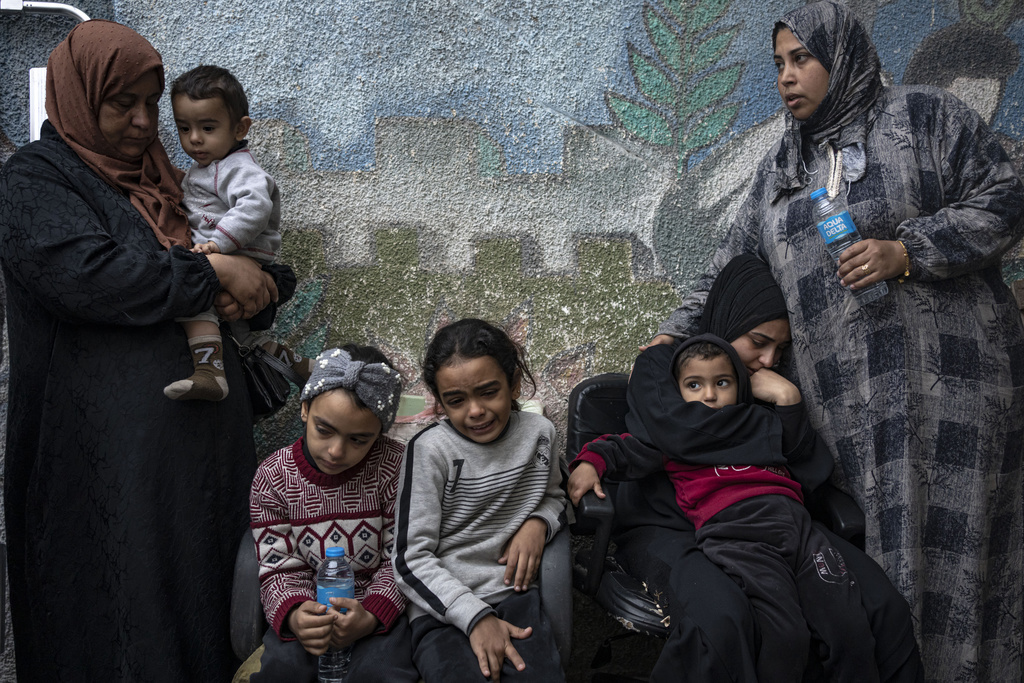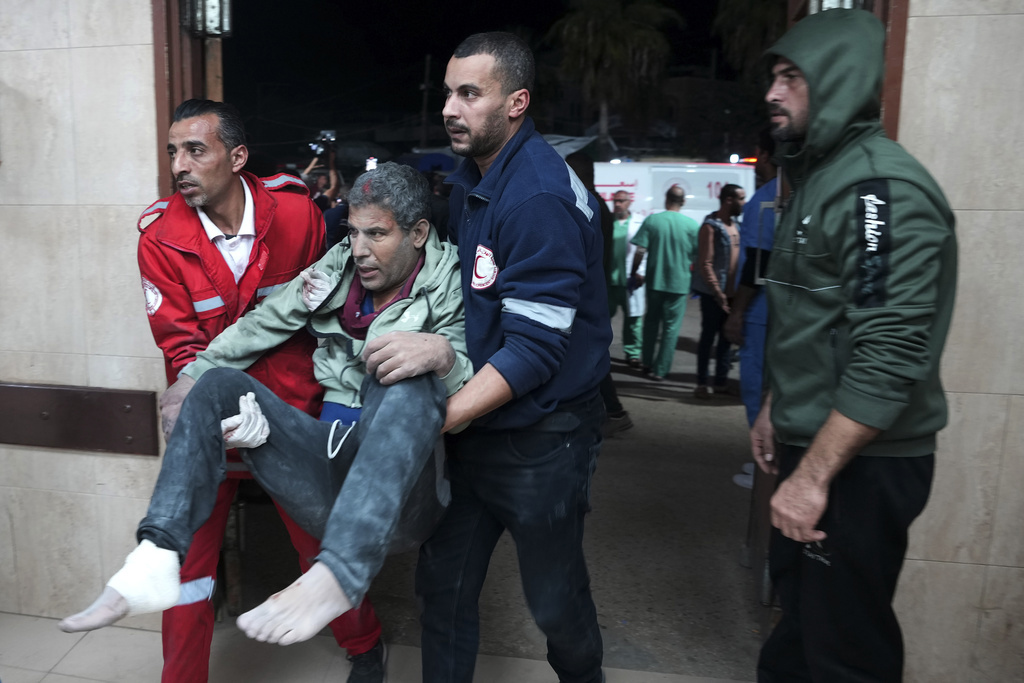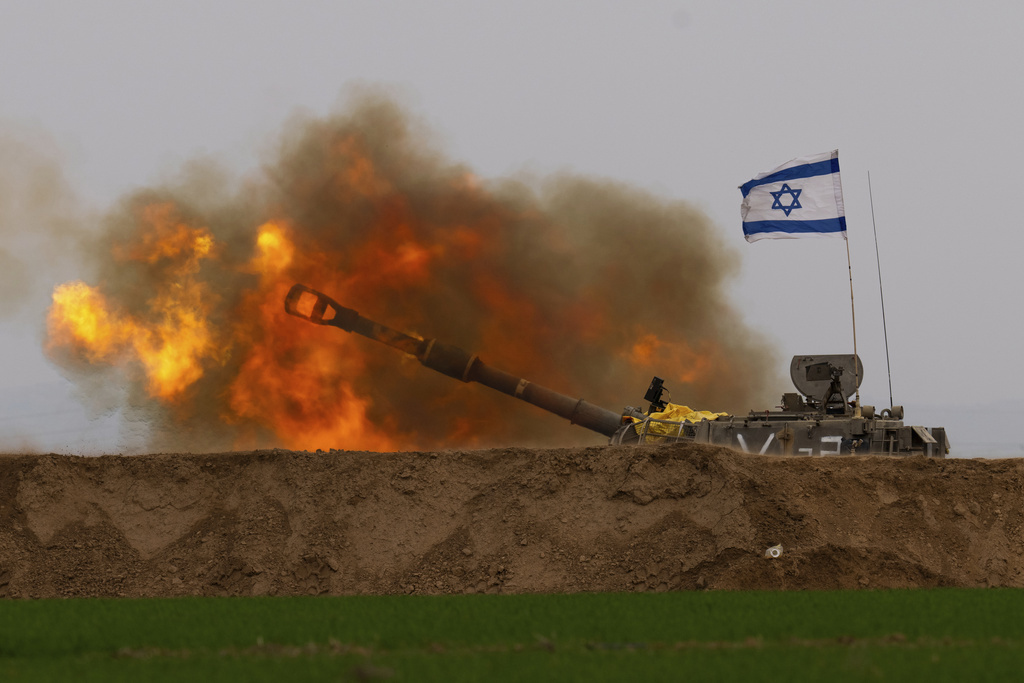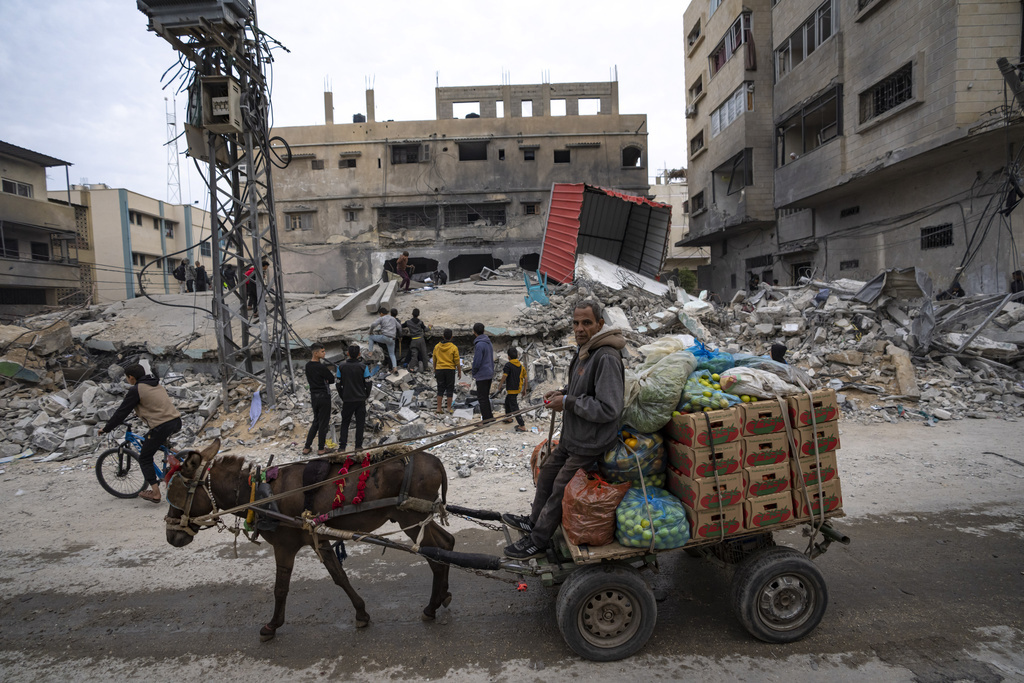More than half a million people in Gaza — a quarter of the population — are starving due to "woefully insufficient" quantities of food entering the territory ever since Israel's military responded to Hamas' October 7 attack, according to a report released by the United Nations and other agencies.
Thursday's (Friday AEDT) report highlighted the humanitarian crisis in Gaza after more than 10 weeks of relentless bombardment and fighting.
The extent of the population's hunger eclipsed even the near-famines in Afghanistan and Yemen of recent years, according to figures in the report.
READ MORE: At least 15 people dead after mass shooting at Prague university

"It doesn't get any worse,'' said Arif Husain, chief economist for the UN's World Food Program.
"I have never seen something at the scale that is happening in Gaza. And at this speed. How quickly it has happened, in just a matter of two months."
Israel says it is in the final stages of clearing out Hamas militants from northern Gaza, but that months of fighting lie ahead in the south. The war sparked by Hamas' deadly October 7 rampage and hostage-taking in Israel has killed nearly 20,000 Palestinians.
Some 1.9 million Gaza residents — more than 80 per cent of the population — have been driven from their homes, with more than a million now cramming into UN shelters.
The war has also pushed Gaza's health sector into collapse. Only nine of its 36 health facilities are still partially functioning — and all are located in the south, the World Health Organisation said.
WHO relief workers on Thursday reported "unbearable" scenes in two hospitals they visited in northern Gaza: bedridden patients with untreated wounds cry out for water, the few remaining doctors and nurses have no supplies, and bodies are lined up in the courtyard.
READ MORE: Bushfire threatens homes, lives east of Perth

Bombardment and fighting continued on Thursday, but with Gaza's internet and other communications cut off for a second straight day, details on the latest violence could largely not be confirmed.
UN Security Council members are negotiating an Arab-sponsored resolution to halt the fighting in some way to allow for an increase in desperately needed humanitarian aid deliveries to Gaza.
A vote on the resolution, first scheduled for Monday, was pushed back again on Wednesday in the hopes of getting the US to support it or allow it to pass after it vetoed an earlier cease-fire call.
Thursday's report from the UN underscored the failure of weeks of US efforts to ensure greater aid reaches Palestinians. At the start of the war, Israel stopped all deliveries of food, water, medicine and fuel into the territory. After US pressure, it began allowing a trickle of aid in through Egypt, but UN agencies say it fell far short of enough.
READ MORE: Rapids, landslides turn paradise into war zone

This week, Israel began allowing aid to be delivered through its Kerem Shalom crossing into Gaza. But a blast on Thursday morning hit the Palestinian side of the crossing, forcing the UN to stop its pickups of aid there, according to Juliette Touma, spokesperson of UNRWA, the UN agency for Palestinian refugees.
At least four people were killed, the nearby hospital reported. Palestinian authorities blamed Israel for the blast, but its cause could not immediately be confirmed.
Delivery of aid to much of the Gaza Strip has become difficult or impossible due to continued fighting, UN officials have said.
The report released Thursday by 23 UN and nongovernmental agencies found that the entire population in Gaza is in a food crisis, with 576,600 at catastrophic — or starvation — levels.
READ MORE: Teenager dies while swimming with friends at Queensland creek
"It is a situation where pretty much everybody in Gaza is hungry," Husain, the World Food Program economist, said.
The lack of food and water weakens immune systems, making the population more vulnerable to disease, Husain said.
"People are very, very close to large outbreaks of disease because their immune systems have become so weak because they don't have enough nourishment," he said.
Husain said border crossings need to be operational to get in essential supplies, including food and water. And he said that humanitarian groups need safe access to the entire Gaza strip.

Israel has vowed to continue the offensive until it destroys Hamas' military capabilities and returns scores of hostages captured by Palestinian militants during their October 7 rampage. Hamas and other militants killed some 1200 people that day, mostly civilians, and captured around 240 others.
Source: https://ift.tt/t8UzxZB
Comments
Post a Comment